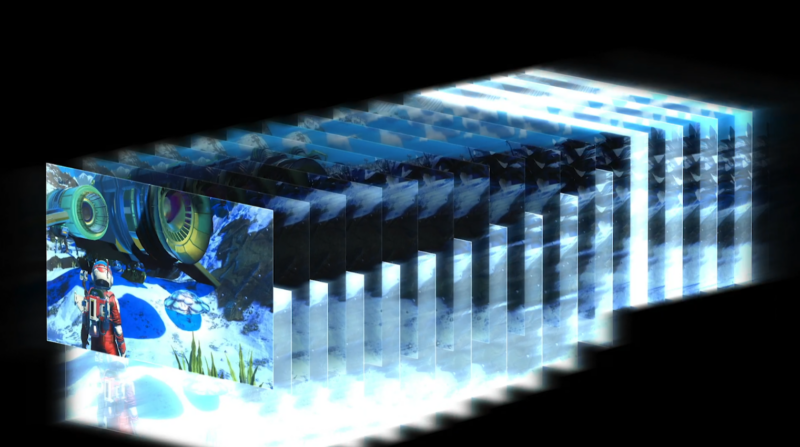

MetalFX Upscaling will bring DLSS-like image reconstruction to games on MacOS |...
source link: https://arstechnica.com/gaming/2022/06/metalfx-upscaling-will-bring-dlss-like-image-reconstruction-to-games-on-macos/
Go to the source link to view the article. You can view the picture content, updated content and better typesetting reading experience. If the link is broken, please click the button below to view the snapshot at that time.
Upscaling Apple gamers' hopes —
Apple’s new MetalFX Upscaling system will compete with AMD FSR, Nvidia DLSS
Apple wants triple-A gaming back, and image reconstruction could get them there.
Sam Machkovech - 6/6/2022, 6:35 PM

CUPERTINO, Calif.—At this year's WWDC, Apple announced a surprising new system coming to its Metal 3 gaming API that may sound familiar to PC gamers: MetalFX Upscaling.
The system will leverage Apple's custom silicon to reconstruct video game graphics using lower-resolution source images so that games can run more efficiently at lower resolutions while looking higher-res. This "temporal reconstruction" system sounds similar to existing offerings from AMD (FidelityFX Super Resolution 2.0) and Nvidia (Deep Learning Super-Sampling), along with an upcoming "XeSS" system from Intel.
Based on how the system is described, it will more closely resemble AMD's system, since Apple has yet to announce a way for MetalFX Upscaling to leverage its custom-made "Neural Engine" system. Apple has previously spoken at length to Ars Technica about machine learning models used to drive its custom silicon, but today's Metal 3 API news didn't include any such mentions, leaving Nvidia's RTX series of graphics cards in the lead in that department.
AdvertisementBy announcing this functionality for some of the world's most popular processors, Apple is arguably letting more game developers build their games and engines with image reconstruction—even if MetalFX Upscaling isn't open source, unlike AMD's FSR 2.0 system. Still, these image reconstruction systems typically have temporal anti-aliasing (TAA) in common. So long as game devs keep that kind of anti-aliasing in mind with their games and engines, they'll be more likely to take advantage and thus run more efficiently on a wide range of consoles, computers, and smartphones.
Metal 3 will also include a new "resource-loading" API designed to streamline asset-loading processes in video games, which currently sounds similar to Microsoft's DirectStorage system to optimize visually intensive IO processes that might otherwise be bottlenecked by traditional protocols.
To celebrate this Metal 3 API milestone, Apple confirmed that popular and processing-intensive games Resident Evil Village and No Man's Sky will come to macOS "later this year." Apple also says the same Metal 3 API benefits will land in iPadOS 16 this year.
This article has been updated to clarify how Apple's Neural Engine may or may not figure into the Metal 3 API.
Promoted Comments
-
IntergalacticWalrus wrote:Yes, the MacOS gaming market may be small but the iOS mobile gaming market is not. Any gaming engine intended for mobile devices has to support Metal.ERIFNOMI wrote:I don't think the lack of upscaling is what's keeping developers from targeting games for macOS. Surely Apple knows it's because no one is going to adopt your special API. Just support Vulkan and OpenGL.Once again that's nonsense, both Unreal and Unity already support Metal, and that's like 90% of all current games. Plus, MoltenVK provides a path for porting anything else that already supports Vulkan.
The lack of interest in supporting macOS is more complicated than that. -
breze Ars Tribunus Militumjump to postI guess we haven't heard anything about a hypothetical Apple VR headset (as there'd be an article about it if so), but I wonder if this sort of upscaling could be a stepping-stone on that path? "Keep latency set, upscale to the extent possible" seems like a good VR strategy, where framerate drops aren't really possible and (for portable VR) power efficiency is at least a concern.
Recommend
About Joyk
Aggregate valuable and interesting links.
Joyk means Joy of geeK